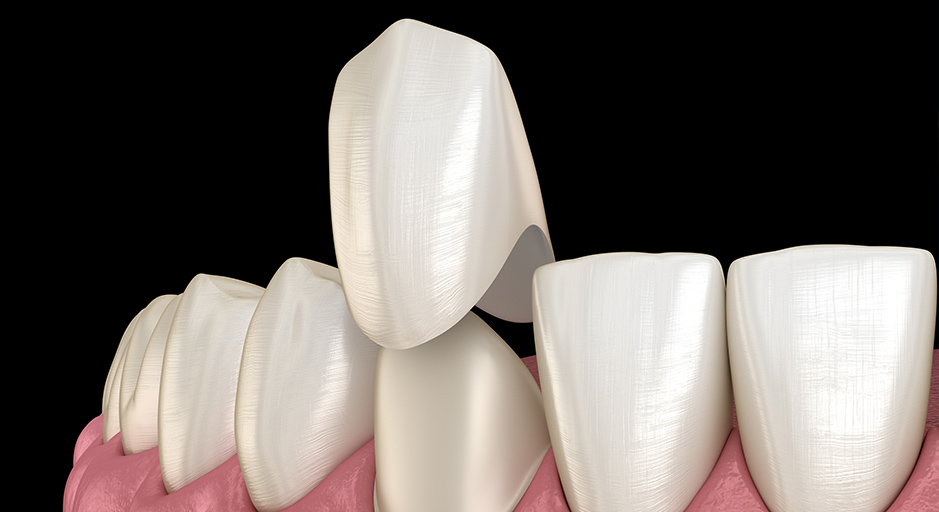The Pros and Cons of Dental Crowns
For people with damaged teeth, dental crowns (also called tooth crowns) can offer a great solution for restoring tooth appearance and functionality.
While getting dental crowns is a common, popular and safe procedure, just as with any treatment, dental crowns come with advantages and disadvantages.
DentArana will explain the pros and cons of dental crowns, so you can understand the different options available and decide whether dental crowns are the best solution for your current circumstances and your overall oral health.
What is a dental crown?
A dental crown is a custom-made cap that’s placed over a damaged or decayed tooth. It’s designed to restore the tooth’s strength, shape, size, and appearance while improving its overall functionality.
Dental crowns are often used to protect and preserve teeth that cannot be restored with fillings or other dental treatments.
What is a dental crown made of?
Dental crowns can be made from various materials. Each type of dental crown has its own set of advantages and disadvantages, and an appointment with your Arana Hills dentist can take you through each and provide the best solution for your particular needs. Dentarana have taken the time to list each type of crown, as well as the advantages and disadvantages of each:
Porcelain or Ceramic Crowns:
- Advantages: Porcelain or ceramic dental crowns offer excellent aesthetics, as they closely resemble natural teeth in colour and translucence. This makes them an ideal choice for front teeth.
- Disadvantages: Porcelain and ceramic crowns may be less durable than other materials and are more prone to chipping or cracking, especially when used on molars (the teeth used for chewing) that undergo a lot of pressure.
Metal Crowns (Gold or Silver Alloys):
- Advantages: Metal crowns are highly durable and long-lasting. They can withstand the strongest chewing forces and are less likely to break or chip.
- Disadvantages: The metallic appearance of these crowns makes them less aesthetically pleasing, which may be a concern for some patients, especially for visible front teeth.
Porcelain-Fused-to-Metal (PFM) Crowns:
- Advantages: PFM crowns combine the strength of metal with the natural appearance of porcelain, offering both durability and aesthetics. They are suitable for both front and back teeth.
- Disadvantages: Over time, a thin metal line near the gumline may become visible, affecting the crown’s appearance. All ceramic crowns are more aesthetic, and all-metal crowns are stronger.
Zirconia Crowns:
- Advantages: Zirconia crowns are a great choice for front and back teeth due to their natural-looking aesthetics and exceptional durability, making them highly resistant to chipping and cracking.
- Disadvantages: Zirconia crowns tend to be more opaque than other materials, which can impact their translucence and overall appearance. However, advancements in technology have led to more translucent zirconia options.
What are the reasons for getting a dental crown?
There are several reasons why your dentist might recommend a dental crown:
- Tooth protection: Crowns are used to protect weak or damaged teeth from further deterioration, particularly when the tooth structure has been compromised due to decay, fractures, or large fillings.
- Restoration of broken teeth: Dental crowns can restore teeth that have been broken or fractured, allowing them to function normally.
- Cosmetic enhancement: Dental crowns can improve the appearance of discoloured, misshapen, or poorly aligned teeth, enhancing your smile.
- Root canal treatment: After a root canal procedure, a dental crown is often placed over the treated tooth to strengthen it and prevent future infection.
The Advantages of Getting a Dental Crown
Dental crowns are a popular and effective solution for restoring damaged or weakened teeth. Here are some benefits of dental crowns:
- Improved tooth function and aesthetics: Dental crowns restore your teeth’s function and appearance, so you can eat, speak, and smile confidently.
- Enhanced strength and durability: Crowns provide a protective barrier that prevents further damage and extends the life of weakened teeth.
- Long-lasting results: With proper care, dental crowns can last many years, providing permanent dental restoration.
- Natural-looking results: Porcelain and ceramic crowns can be matched to the colour of your existing teeth, providing a seamless and natural-looking result.
- Improved chewing and speaking abilities: Dental crowns restore the functionality of damaged teeth, improving your ability to eat and speak comfortably.
- Prevention of further damage: Crowns can protect teeth from further decay and cracking.
- Support for dental bridges: Dental crowns are often used to anchor dental bridges, replacing missing teeth and maintaining proper alignment.
The Disadvantages of Getting a Dental Crown:
However, as with any dental procedure, there are some disadvantages of dental crowns to consider as well:
- Cost: Dental crowns can be relatively expensive, especially when using high-quality materials. The cost may also vary depending on the complexity of the procedure.
- Tooth sensitivity: Some people may experience increased tooth sensitivity after crown placement, which typically subsides over time.
- Multiple appointments: The process of getting a dental crown may require more than one dental visit, which can be inconvenient for some people.
- Potential for damage: While durable, crowns can still chip or break, requiring replacement. Avoiding excessive force or habits like teeth grinding can help prolong their lifespan.
- Possible allergic reactions: Metal crowns may cause allergies in some individuals, so it’s crucial to discuss material options with your dentist if you have known allergies.
What to consider when getting a dental crown
When deciding whether to get a dental crown, it’s essential to carefully weigh up the pros and cons, taking your specific dental needs and circumstances into account.
If you’re thinking of getting dental crowns, consider the following factors:
- Your budget: When considering dental crowns, it is important to discuss cost and material options with your dentist at Arana Hills as prices and complexity vary.
- Material choice: Talk to your dentist about the pros and cons of different crown materials to make an informed choice based on your preferences and needs.
- Maintenance: While easy to care for, dental crowns require regular oral hygiene and dental check-ups to ensure their longevity, so it’s important to be aware of the maintenance involved.
- Alternative treatments: In some cases, alternative dental treatments, such as veneers or fillings, may be more suitable for your specific dental condition. Discuss these options with your dentist so you can decide which treatment is best for you.
Before deciding to get a dental crown, it’s important to weigh the pros and cons, and take into consideration your individual circumstances. DentArana, your Arana Hills dentist is the best person to provide you with more information on whether a crown is the suitable option for you, and also to answer any questions you may have about the process.
If you’d like to chat with your dentist about dental crowns, book an appointment at Dentarana today.





